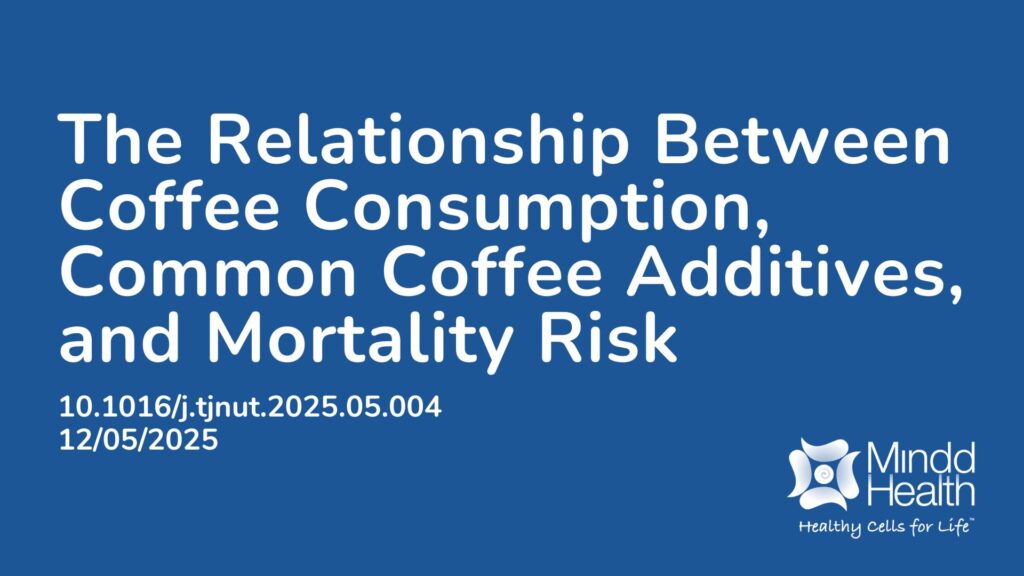Summary:
This prospective cohort study examined whether the addition of sugar and saturated fat to coffee affects its potential health benefits, particularly its mortality risk. Data from 46,332 U.S. adults aged 20 and over were analyzed using the National Health and Nutrition Examination Survey. Participants provided detailed 24-hour dietary recall data, including type of coffee consumed (caffeinated or decaffeinated), and amounts of added sugar and saturated fat. The analysis looked at associations between coffee intake and all-cause, cardiovascular, and cancer mortality. During the follow-up period of approximately 9 to 11 years, there were 7,074 recorded deaths, including those from cancer and cardiovascular disease. Moderate coffee intake (from 1 to <3 cups/day) was associated with reduced overall mortality risk. However, this benefit was not observed when higher amounts of sugar and saturated fat were added. Specifically, lower mortality was seen among those who drank black coffee or coffee with minimal added sugar and fat. These findings suggest that coffee may support longevity, but its health benefits could be weakened when high-calorie ingredients are added.
Abstract:
Background: Although coffee consumption has been associated with a variety of health benefits, it remains unclear whether the addition of sugar and saturated fat modifies these effects. Objectives: This study aimed to examine the relationship between coffee intake, including the amount of added sugar and saturated fat, and mortality among United States adults. Methods: We conducted a prospective cohort study using data from the National Health and Nutrition Examination Survey from 1999 to 2018, linked to National Death Index Mortality Data. The study included 46,332 adults aged 20 y and older who completed valid first-day 24-h dietary recalls. Coffee consumption was categorized by type (caffeinated or decaffeinated) and by sugar (<2.5 g per 8-oz), and saturated fat content (<1 g per 8-oz). Mortality outcomes included all-cause, cancer, and cardiovascular disease (CVD) mortality. Cox proportional hazards models were used to estimate hazard ratios (HRs) and 95% confidence intervals (CIs) for mortality risk based on type, intake levels (nondrinkers, <1 cup/d, 1 to <2 cups/d, 2 to <3 cups/d, and ≥3 cups/d) and the amount of added sugar and saturated fat. Results: Over a median follow-up of 9.3–11.3 y, a total of 7074 deaths occurred, including 1176 cancer-specific and 1089 CVD-specific deaths. Higher coffee consumption was associated with lower all-cause mortality [HR (95% CI): 0.89 (0.78, 1.02) for < 1 cup/d; 0.84 (0.77, 0.92) for 1 to <2 cups/d; 0.83 (0.75, 0.93) for 2 to <3 cups/d; and 0.85 (0.77, 0.95) for ≥3 cups/d; P-trend = 0.004]. However, the mortality benefits were restricted to black coffee [HR (95% CI): 0.86 (0.77, 0.97)] and coffee with low added sugar and saturated fat content [HR (95% CI): 0.86 (0.75, 0.99)]. Conclusions: The health benefits of coffee consumption may be diminished when sugar and saturated fat are added.
Article Publication Date: 12/05/2025
DOI: 10.1016/j.tjnut.2025.05.004



